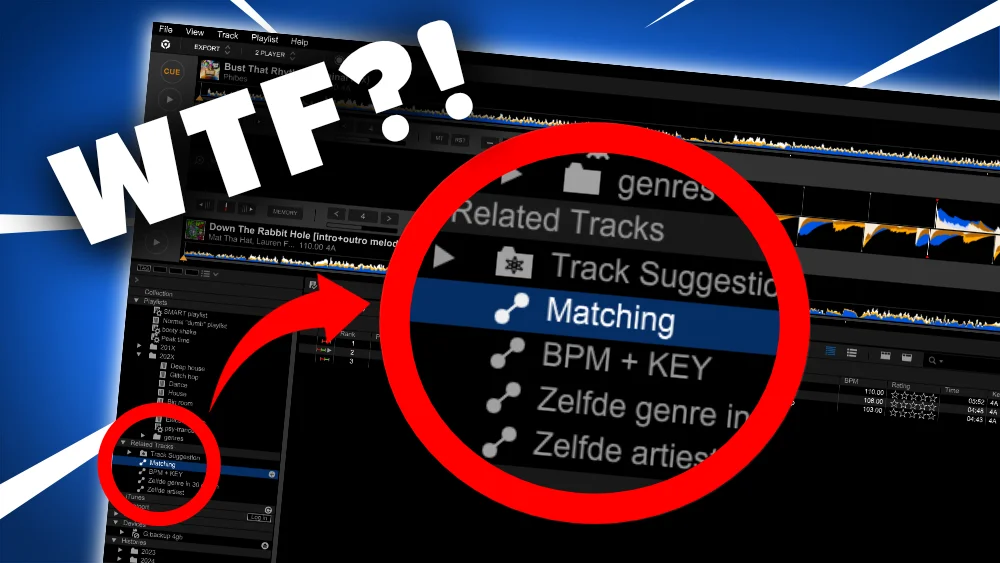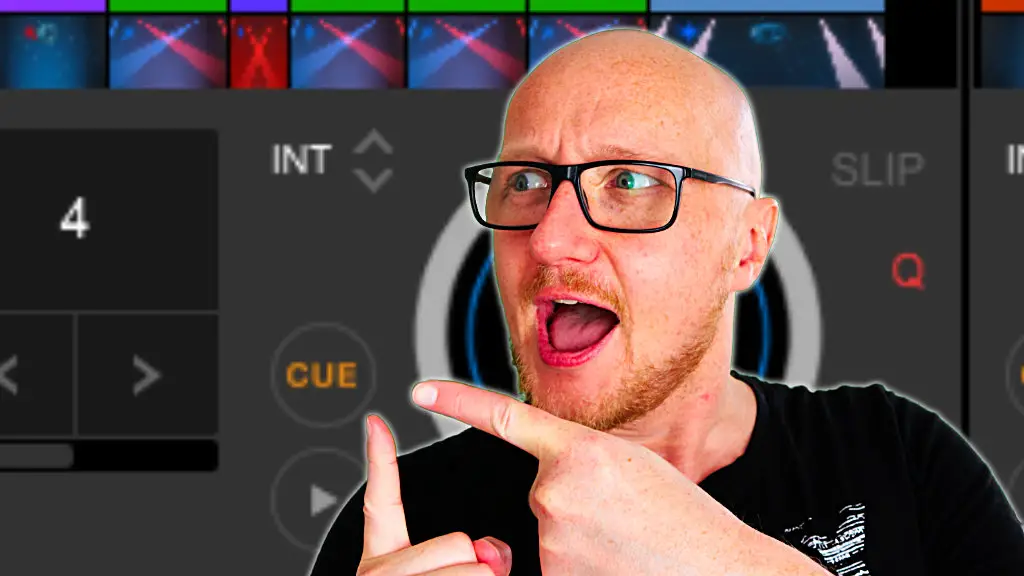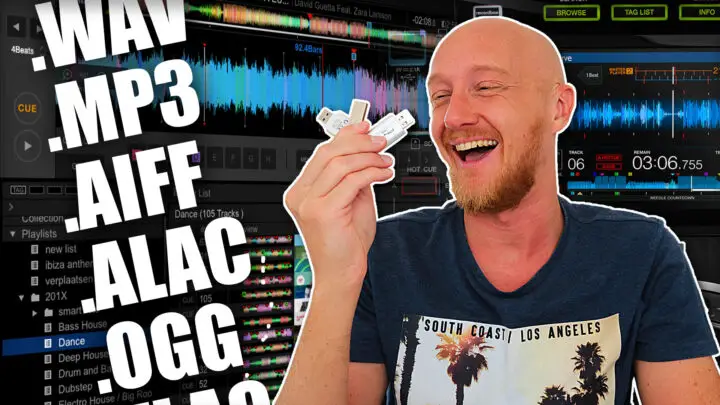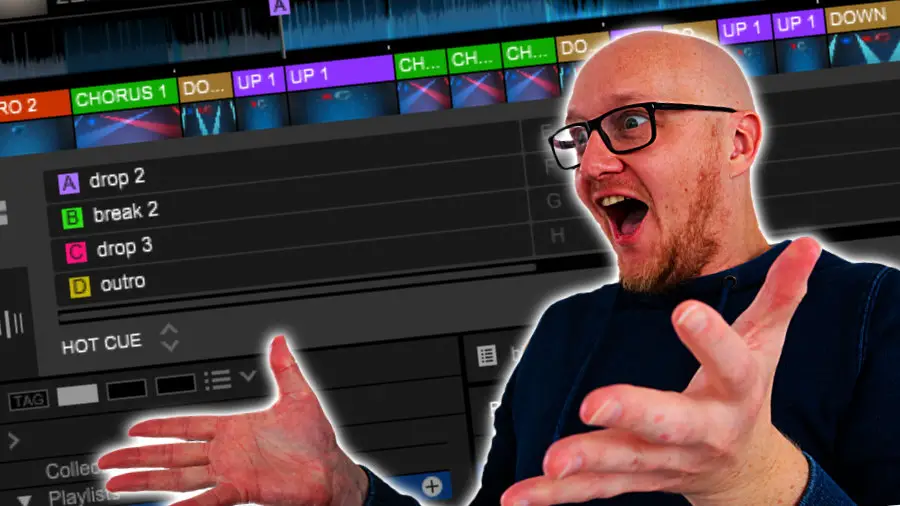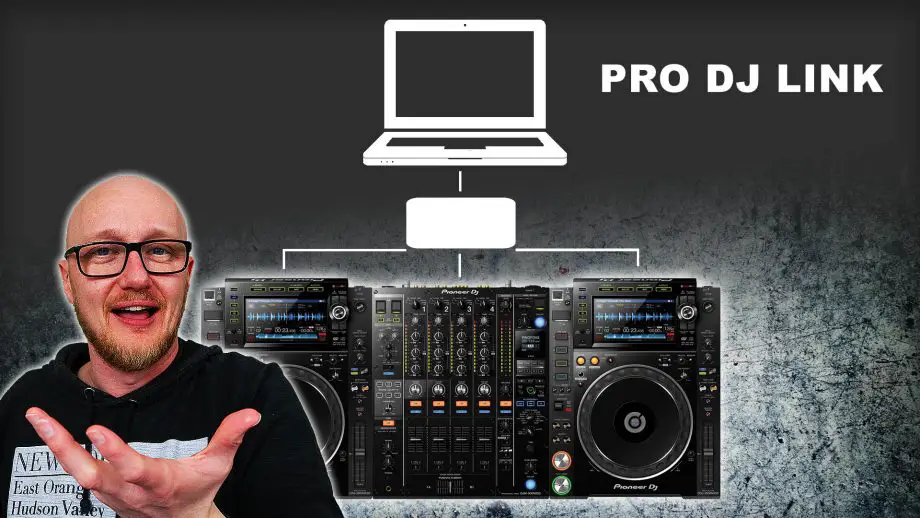The dark truth about why every DJ gets Tinnitus
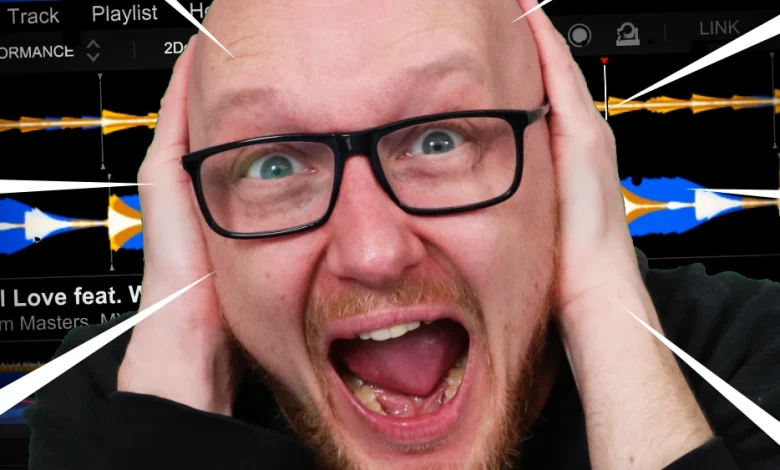
Hearing loss has become a occupational hazard for DJs, regretfully.
It’s not a question IF it will happen to you, but WHEN!
Before I dive into how you can protect yourself against Tinnitus, let me explain the difference between “hearing loss” and “tinnitus”.
Table of Contents
What is hearing loss?
Hearing loss is the diminished capacity to hear things properly
Hearing loss is a very natural process of becoming older.
In contrast to popular belief, someone suffering from hearing loss does not need louder sounds to be able to hear properly.
Someone suffering from hearing loss hears less frequencies on the top and bottom of the frequency spectrum.
In the reduced frequency specturm, only some of the frequencies are effected, but not by equal amounts.
Some frequency ranges are practically unaffected, others are diminished.
For someone suffering from hearing loss, it is harder to distinguish different frequencies.
So, for them it is harder to understand speech.
Especially in a large group of people or with a lot of background noise.
To someone suffering from hearing loss, the world sounds more harsh and sharp than to someone without it.
High pitched sounds especially, are perceived as painful, much more than other frequencies at the same volume.
The sounds of cleaning out the dishwasher are extremely painful.
Also the sound of the train wheels on rails even more so.
What is tinnitus?
The words “tinnitus” and “hearing loss” are often used interchangeably.
Someone with hearing loss doesn’t always have tinnitus.
But someone with tinnitus always suffers from loss of hearing.
My grandmother suffers from hearing loss (because of age), but she doesn’t have tinnitus.
Tinnitus is the 24/7 ringing sound in your ear around around a certain frequency.
Tinnitus is caused by unnatural damage to my cochlea due to hard sounds.
Someone with tinnitus also has a diminished hearing capacity around that frequency.
Someone with tinnitus will experience music differently that someone without tinnitus.
This isn’t necessarily a problem for DJ, but it is for music producers, because they don’t hear what their listeners hear.
My personal experience
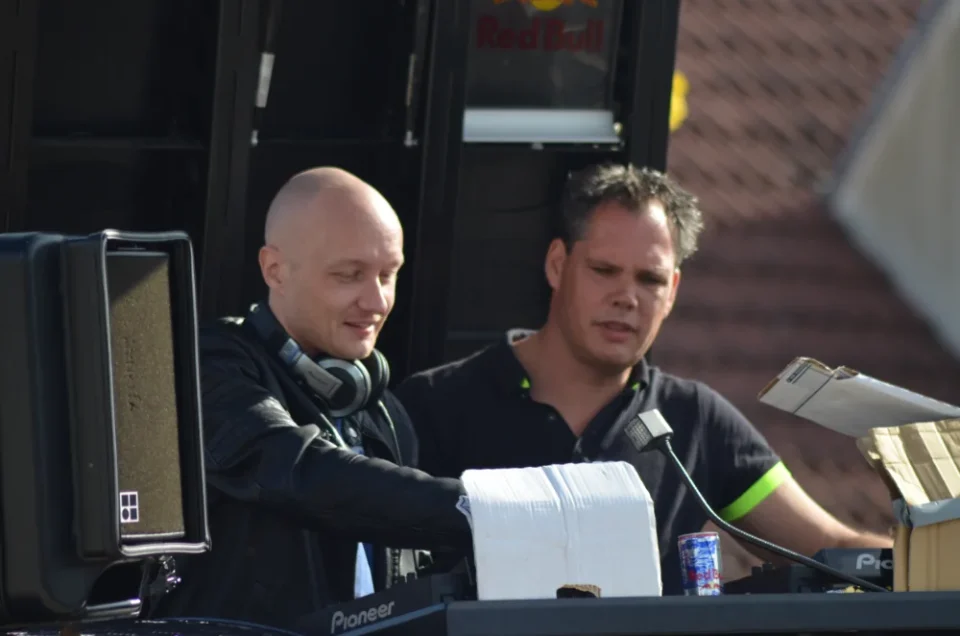
The reason I know so much about hearing loss and tinnitus, is because I suffer from it myself.
My tinnitus frequency is 4000 Hz.
Weirdly enough, DJing didn’t cause my tinnitus.
I didn’t even know I had tinnitus, until I started DJing.
I thought my ears where “sensitive” …. (remember that I talked about the harsh sounds earlier?).
Because “I had sensitive ears” I wanted in-ear monitors to protect myself against hearing loss.
It wasn’t until I talked with the company that sold me my hearing protection that I probably suffered from hearing loss.
The guy told me to get tested by my doctor.
The doctor referred my to a hearing care professional.
She did some tests with tonal beeps at certain frequencies, and confirmed I had tinnitus.
The exact cause of my hearing loss I don’t know.
I suspect is was the noise of loud groups of people.
At that time I was working in corporate events with groups of 100, sometimes 250 people shouting and yelling at the same time.
For a while, the tinnitus drove me crazy.
Imagine hearing a constant tone of 4000 Hz whatever you do, even when you are in bed trying to sleep.
By now I got used to it.
I can literally hear when I’m tired, because the volume of the tinnitus.
Free DJ tips in your inbox?
As a bonus gift I will send you a FREE E-book on how to kick-off your DJ career!
Causes
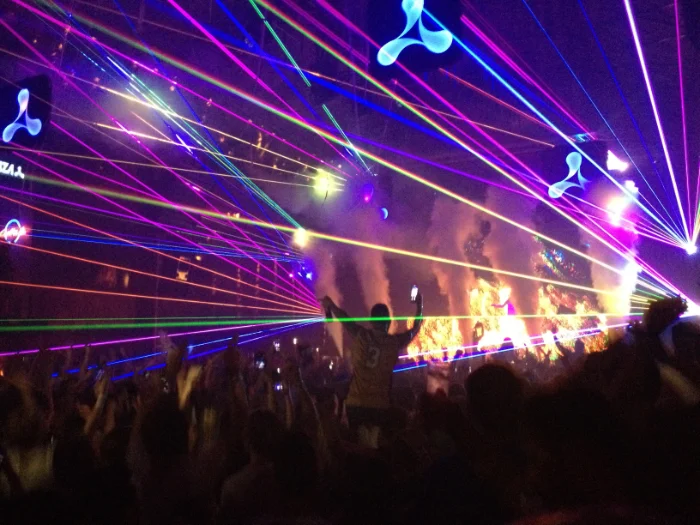
Tinnitus is caused by loud sounds over a prolonged period of time.
The louder the sound, the less time you can be exposed.
Here are safe listening times per 24 hours.
Exceeding these limits is almost a guarantee to get tinnitus.
| 80 dB | 8 hours |
| 83 dB | 4 hours |
| 86 db | 2 hours |
| 89 dB | 1 hour |
| 92 dB | 30 min. |
| 95 dB | 15 min. |
| 98 dB | 7 min. – 30 sec. |
| 101 dB | 3 min – 45 sec. |
| 104 dB | 1 min – 52 sec. |
| 107 dB | 56 sec. |
| 110 dB | 28 sec. |
| 113 dB | 14 sec. |
| 116 dB | 7 sec. |
| 119 dB | 3.5 sec. |
| 120 db | pain limit |
| 122 dB | 1.7 sec. |
| 125 dB | 0.8 sec. |
There are apps for your phone to see how loud music is.
This way found out that some clubs in Ibiza are playing at 107 dB.
It takes an average person only 56 seconds to get tinnitus in Ibiza without hearing protection.
While the high pitch sounds are often painful for people with tinnitus, the tinnitus is caused by lower frequencies.
In practice that means for us DJs, the kick and bass of music.
The hairs the cochlea in our inner ear translate vibration into electrical current that the brain interprets as sound. (See the complete explanation on Wikipedia.)
When the low frequencies get too loud, the hairs vibrate too much and start to lie flat.
They either break or stay flat, thus don’t vibrate anymore, so you hear less.
The hairs touch each other because they lie down, this causes a short.
This short is translated into you tinnitus frequency, we perceive as sound.
Older people are much more susceptible to tinnitus than younger people.
The hairs in the cochlea of young people are much more vibrant and sometimes able to recover.
If you have had that ringing sound in your ear after a night at the club, you had tinnitus, albeit short-term tinnitus.
Getting older, or exposing yourself too often to loud music are perfect precipices to get permanent tinnitus.
If that happens, the ringing won’t ever stop.
The pitfall for DJ is, when they don’t hear the music, they turn up the volume.
Which causes even more hearing loss.
This is a never ending spiral!
You won’t fix hearing loss by turning up the volume.
Free DJ tips in your inbox?
As a bonus gift I will send you a FREE E-book on how to kick-off your DJ career!
Prevention
Hearing loss is irreversible!!!
There is no cure for hearing loss, so the only thing you can do is trying to prevent it, or prevent it from becoming worse.
Headphones
Use headphones that completely encapsulate your outer ear.
This way they block background noise and you are able to hear the music in your headphone better.
This way you don’t have to put your headphones louder than they need to be.
In-ear headphones
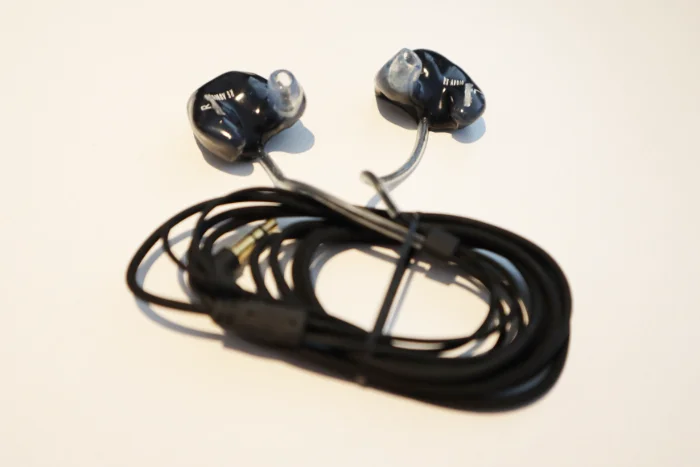
But even better are in-ear monitors.
They completely seal off your hearing from the outside world.
You can still hear, albeit worse, because the only sound you will hear is vibration through your skull.
Put the monitors in before you go into the venue.
When you go into the venue you will still “scare” the hairs in your cochlea.
You still need to put the volume louder.
When you put the monitors in before you go into the venue, you are protected from the start.
Lifestyle
Maintaining a healthy lifestyle by eating healthy and exercising helps to minimize the risk get get tinnitus.
They say that fish-oil tablets help to diminish tinnitus.
But thus far I haven’t heard any improvement with or without the tablets.


